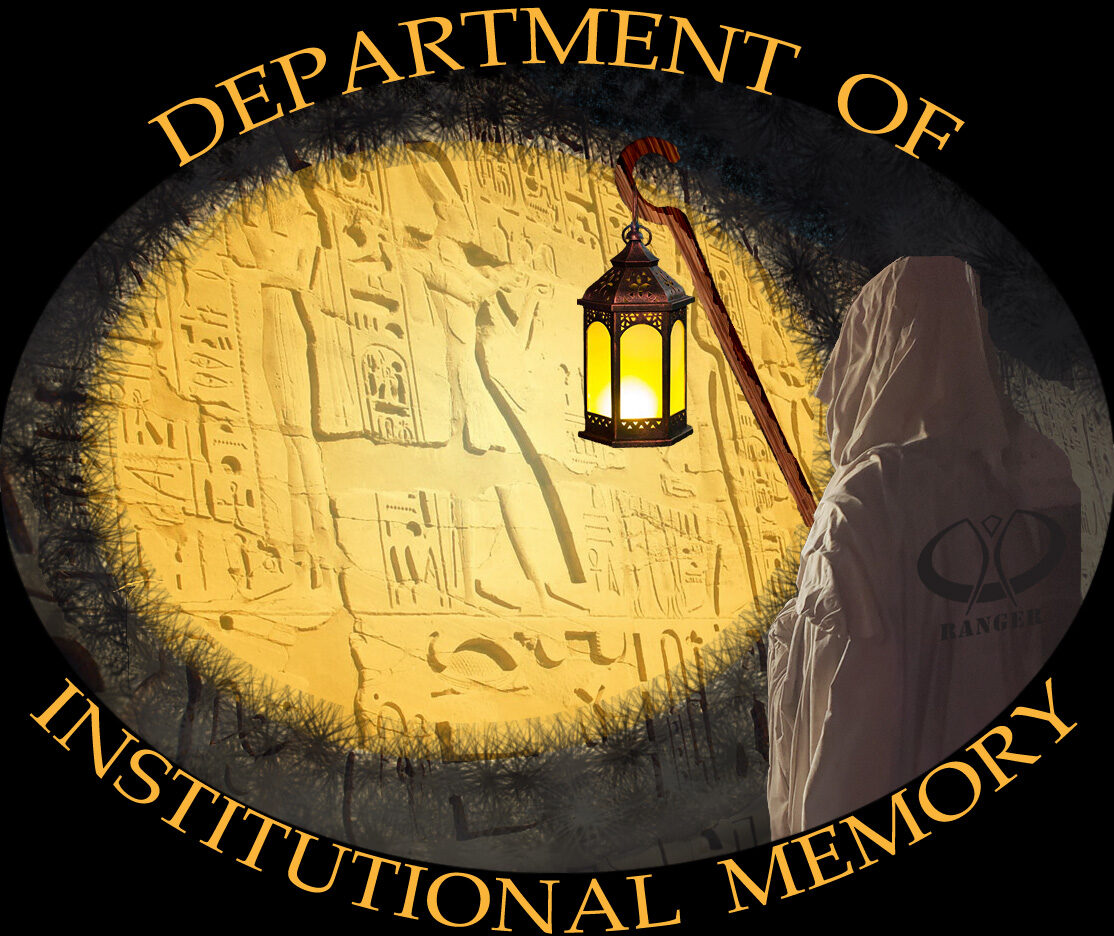By Flint
All – Many years ago as a Shiny Penny I walked my mentor shift. My mentors were two polar opposites of each other: their approach was different, their advice was different, their costumes were different, everything about them was completely different. My previous worldview of Rangers was that they were a homogenized group of people, not strictly individuals. Merely folks who wore the same costume and helped out people at Burning Man. Rangers pretty much all looked alike and consistently pointed towards the same bank of port-o-potties. You can imagine that I was a bit confused because my mentors did not fit this worldview of mine. After a long day in the sun walking around with these two individuals, I learned that the Ranger department is comprised of volunteers from all walks of life who approach the Art of Rangering from differing perspectives. Lesson one learned. Lesson two was learned as I continued my path as a Ranger over the course of the next couple of years. I learned that all the Rangers – all of them – are just people. People like you and me. From the dirt shift Rangers to the upper management policy makers, they were all just people. People who have hopes, dreams, fears, good ideas, bad ideas, faults, strengths, strong and noble opinions; they were just like me. Just like you. This allowed me to feel more comfortable engaging with those in leadership and offering suggestions. I started to have ideas on how to do things better. Mind you, I didn’t have the historical context or a holistic experience in how my suggestions fit into the larger picture. But I would ask, leadership often provided constructive criticism and guidance on my ideas. Lesson three was that to be heard and understood, you needed to speak up, but also to listen to what others had to say. I certainly didn’t have all the answers, but collectively we could come up with solutions. The Rangers (and Burning Man) work in a consensus-based model: the environment allows all to be heard in an atmosphere of respect to promote their viewpoints. The final agreement is a shared decision. Even if individually we don’t completely align ourselves with the outcome, we all agree on the ownership of the end product. This takes time and decisions are not made hastily. Lesson four: the trust for each other and our process is vitally important in getting things done. We can’t do this alone. In my professional career I’ve learned about lesson five: the need to respect others’ experiences is invaluable. We can’t make decisions that have a deep and lasting impact without listening and understanding what others have to say. I mean, we could, but those decisions usually fail spectacularly. You may not agree with everyone or even like them. However, you should extend everyone the common courtesy to be heard, understood, and acknowledged. If you fail in doing so, you’ve limited your growth and understanding of your fellow Rangers. I leave you with four reminders: Take four deep breaths before responding (remember to exhale) Be patient and maintain empathy with everyone you meet There’s a real, live human at the end your communications Write your message in the same tone as you’d write your friends. Ranger Flint
